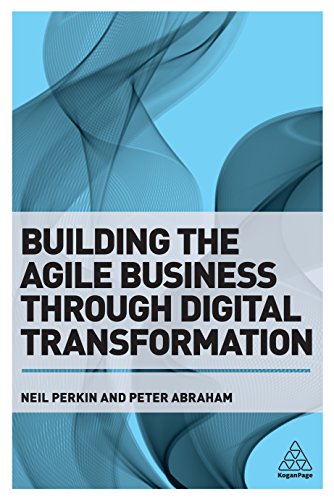Building the Agile Business through Digital Transformation Link to heading
Summary Link to heading
“Building the Agile Business through Digital Transformation” by Neil Perkin and Peter Abraham is a comprehensive guide that explores how businesses can adapt and thrive in the digital age through agile methodologies. The book focuses on the integration of agile principles into business strategies to foster digital transformation. It examines how companies can leverage digital tools and practices to become more responsive to change, innovate rapidly, and improve customer experiences. The authors delve into the challenges and opportunities that digital transformation presents, offering practical strategies and frameworks to implement agile processes effectively across various organizational levels.
Review Link to heading
The book is lauded for its practical approach and detailed analysis of digital transformation within organizations. Authors Neil Perkin and Peter Abraham provide a well-researched and insightful examination of how agile methodologies can address the fast-paced changes in the digital landscape. The strength of the book lies in its actionable advice, backed by real-world examples and case studies that illustrate successful digital transformations. However, some readers find the content slightly complex, requiring a degree of prior knowledge on agile principles. Overall, the book is a valuable resource for business leaders and professionals aiming to initiate or enhance their digital transformation journey.
Key Takeaways Link to heading
- Adaptability is Key: Emphasizes the importance of agility in adapting to continuous digital disruptions and changing market demands.
- Customer-Centric Approach: Advocates for placing customer experience at the heart of digital strategies to drive business success.
- Cultural Shift: Highlights the need for a cultural transformation within organizations to embrace change and support agile practices.
- Collaboration and Communication: Stresses the significance of cross-functional collaboration and effective communication in fostering innovation.
- Iterative Processes: Supports the use of iterative processes for problem-solving and developing solutions rapidly and efficiently.
Recommendation Link to heading
This book is highly recommended for business leaders, managers, and professionals involved in strategic planning and organizational development. It offers valuable insights for those interested in implementing or improving agile methodologies within their companies and navigating the complexities of digital transformation. Its practical advice and case studies make it a useful guide for anyone seeking to build a more agile and resilient business in today’s digital era.
